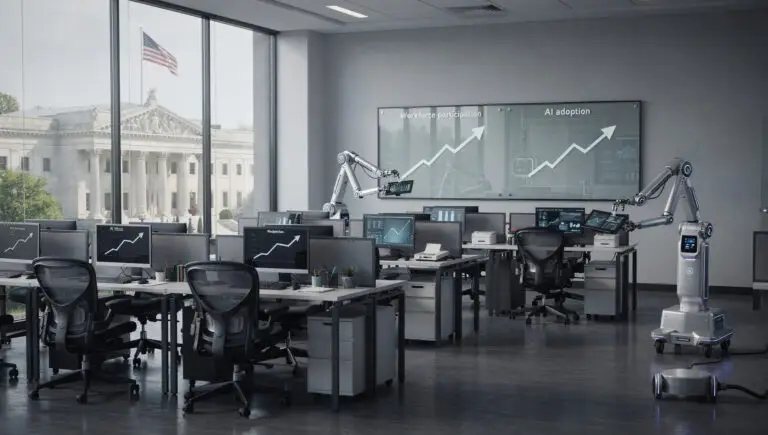Dame Wendy Hall is quite a notable name in the field of AI and computer science for her work on the ethical, societal, and technological implications of new innovations. She has been awarded one of the 100 Most Powerful Women in the UK by Woman’s Hour on BBC Radio 4 for her work as a co-founder of the Web Science Research Initiative and AI Council member.
She has been a champion for the governance of AI, which ensures responsibility, inclusiveness, and diversity, making her one of the leaders in global discourse surrounding the future of AI.
In a recent Q&A, she discussed the harsh inequalities of AI as a field dominated by men, the ethical responsibilities that come with AI systems, and how companies can make use of AI in a socially responsible manner.
The Unrelenting Reality of AI Being Overwhelmingly Female
Hall described her feelings of anger towards the neglect of women in leadership roles within technology companies. She continues to make reference to the 1987 paper that focused on women and computin’g. She dubs the marketing of personal computing devices as ‘toys for boys’ as one of the policies amplifying the computing as nerdy stereotype phenomenon. This stereotype, in her words, defeats the efforts of countless young girls who want to get into computing.
Even with all the efforts to include people in different gender categories within the industry, it is still described as “overwhelmingly male-dominated,” as women have been completely excluded from the design and development of the foundational technologies. According to Hall, the situation is much worse with AI, as it relies heavily on mathematics and computer science, which are already male-dominated fields.
Hall recommends taking a multidisciplinary approach to AI, saying that people from younger and older generations, as well as those from different ethnic and cultural backgrounds, must be included for more well-rounded representation and levels of accessibility. “AI requires attention from lawyers, philosophers, psychologists, business experts, and historians — really, all sorts of different fields—and we need their multifaceted voices,” she argues.
Ethics emerged as a significant area to explore, or for Hall to broaden her scope of AI overreaching boundaries like using facial recognition technology. It is ethically complicated because she employs no rules or guidelines with public scrutiny, devoid of privacy regarding its implementation.
She describes the positive and negative facets of technology, observing, “Each new technology comes with a good and bad side… The difficulty is learning how to maximize the advantages for humanity, society, and business while minimizing the risks. Our focus has to be on making sure AI serves people, not the other way around.”
AI’s Future and Its Effects on Employment
Hall foresees an AI-enabled future where AI systems assist with everyday decision-making in different fields. She points out that AI is already present in Google, Google Translate, and other forms of technology that people use on a daily basis.
On the other hand, she reminds everyone not to exaggerate generative AI’s capabilities, with ChatGPT as an example. “The truth is, it’s not actually intelligent. It’s not sentient. It’s just predicting what the next word to come in is based on the training data. That’s a critical distinction,” she states.
Using AI and Preserving Human Traits
Hall feels that generative AI can be very useful for businesses for tasks like writing, summarizing, and analyzing complex data. She believes that with the advent of any new technology, society learns to use it, like how people learned to use calculators.
She supports the view that AI is an advancement of human capabilities rather than a replacement. “AI will enhance creativity and efficiency, but it has to be considered a tool to advance human intelligence, and that’s because it is not sophisticated enough to take over,” she argues.
Hall also describes biases in the training data and the propensity of current AIs to “hallucinate” or create fictitious information as flaws in AI models. She remarks that it is necessary to apply human scrutiny and rational judgment to AI systems.
To sum up, Hall looks to a future in which humans will work collaboratively with AI, which augments and facilitates human work, enabling greater productivity and creativity, naturally leading to shorter hours in the future.















